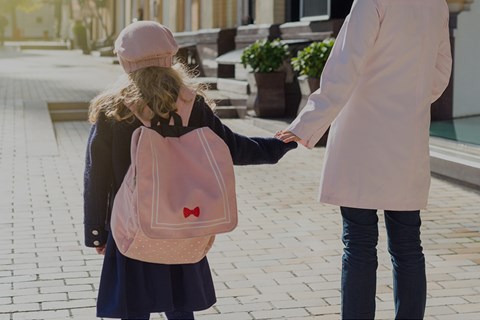The Hague Convention and international child abduction

Australia is party to the 1980 Hague Convention on the Civil Aspects of International Child Abduction (Hague Convention), which is a treaty with multiple other countries that sets out the procedure for seeking the return of abducted children to their home country and helps parents to have contact or access with overseas children. There are five major areas regarding international parenting matters but in this article, we will be looking at international parental child abduction.
Special note - changes to the Family Law Act
The information on this webpage may no longer be current. On 6 May 2024, significant changes to the Family Law Act 1975 (Cth) will come into effect. These changes may impact your family law matter.
Contact us to discuss how these changes could affect your family law matter: 03 8625 8957
Despite the pandemic restricting our overseas travel, our globalized connected world means families are often made up of members of different countries. Some families also move from one country to another for work or personal reasons.
But what does this mean for children of globalized families when parents separate and one parent wishes to move back to their home country with the children or where one parent takes a child out of (or remains in) a country without the permission of the other parent?
It is important to remember that parental consent to travel overseas with a child is required from the other parent and to obtain or renew a passport for the child/ren, unless there are Court Orders to the contrary.
International child abduction by a parent
A person removing a child out of a country (or staying in another country beyond the agreed time) without the other parent’s (or relevant person or institution) knowledge or consent is not an area that currently (during the pandemic) comes up given the difficulty of leaving countries these days. That doesn’t mean it doesn’t or can’t happen. It is a punishable offence, including imprisonment.
In Hague Convention matters, the Family Court of Australia has the power to determine cases where a child has been abducted from or to Australia, called “Hague Convention proceedings”, pursuant to the Family Law (Child Abduction Convention) Regulations 1986 (the Regulations).
Each Hague Convention country has an official government body set up to deal with Hague Convention proceedings, called a “Central Authority”. In Australia, the Commonwealth Central Authority, or any person, institution or body (once certain requirements are met) can apply for the return of a child to Australia or for the return of the child from Australia to their home country.
Hague proceedings are a very technical area of law and they are not determined by the paramount consideration of the “child’s best interests” and the Court’s discretion is very limited - unlike usual parenting matters.
How does the Court work in Hague Convention proceedings?
In Hague Convention proceedings, the Court must determine the following issues before it orders the return of a child to their home country:
- Habitual residence – the child (aged 16 or under) must be habitually resident in Australia or the other convention country immediately before the wrongful removal or retention.
- Wrongful removal or retention – whether the child was removed to Australia or another convention country or retained in Australia or other convention country in breach of the other parent’s (or person or institution) rights of custody.
- Rights of custody – while the term “custody” is not used for usual parenting matters in Australia, in Hague Convention proceedings this refers to guardianship rights, responsibility for the long term or day-to-day care, welfare and development of the children and the person with whom the child lives (not spends time with).
- Eligible applicants – the Central Authority or a person, institution or body exercising the rights of custody.
There are also six (6) very specific grounds on which a Court can decline to make an order for the return of a child to Australia or other convention country.
The Court may still order the return of the child even if only one of the grounds are made out as this is the only discretion given to the Court in Hague proceedings.
The six grounds for declining to make an order for the return of a child
- The person applying for the return of the child was not actually exercising rights of custody and would not have exercised those rights had the child not been removed from or retained in Australia or other convention country.
- The person applying for the return of the child acquiesced or consented to the child being removed to or remaining in Australia.
- There is a grave risk of exposing the child to psychological or physical harm, or otherwise place the child in an intolerable situation if the child were to be returned.
- Where the child objects (more than just an expression of preference) to being returned and the child has reached an age and maturity where it is appropriate to consider their views.
- Where the return of the child would not be permitted according to the protection of human rights and fundamental freedoms in line with the fundamental principles in Australia.
- Where the application was filed one (1) year after the child was removed or retained in Australia or other convention country.
The requirements to apply in Australia and the discretionary grounds on which a Court can decline to make an order for the return of a child are all very specific fact and legal issues and expert legal advice is required to know where you stand.
It is important to note that Hague Convention proceedings only determine whether a child is returned to Australia or another convention country – not who the child returns to. This will be a matter for the local courts at the time the child returns to that country.
What if the other country is a non-Hague Convention country?
Australia may have bilateral agreements with other countries even if they are not party to the Hague Convention. Australia currently has bilateral agreements with Egypt and Lebanon.
If the other country is not a Hague Convention country or there is no bilateral agreement, then the Consular Branch of the Department of Foreign Affairs and Trade may assist. It may also be a matter of seeing if an application can be made in that other country under their local laws.
What do I do if I am concerned that the other parent or family member will take our child from Australia without my consent?
You should seek immediate legal advice. If this is a concern, there could be more underlying or other safety issues and steps need to be taken to try to stop your child leaving Australia, including:
- Making an application to the Family Law Courts to have your child’s name placed on the Family Law Watchlist. This means the Australian Federal Police may be able to prevent your child from travelling overseas.
- Submitting a Child Alert Request with the Australian Passport Office to issue a warning to the Department of Affairs and Trade before a passport is issued to the child.
You should also get your child’s passport if you can (and other official documents) along with photos of your child and your partner/ex-partner or family member and contact details of family overseas.
How a family lawyer can help
Smith Family Law can assist in Hague Convention proceedings and putting in place mechanisms to prevent a child from travelling overseas.
If you are the parent that wants to move overseas, the best option is to make an application to the Family Law Courts seeking to relocate there with the children. We can also assist with this application and give you detailed advice about the prospects of success. A blog on this topic will be shortly available.
Contacting Smith Family Law
This article is of a general nature and should not be relied upon as legal advice. If you require further information, advice or assistance for your specific circumstances, please contact Smith Family Law.

